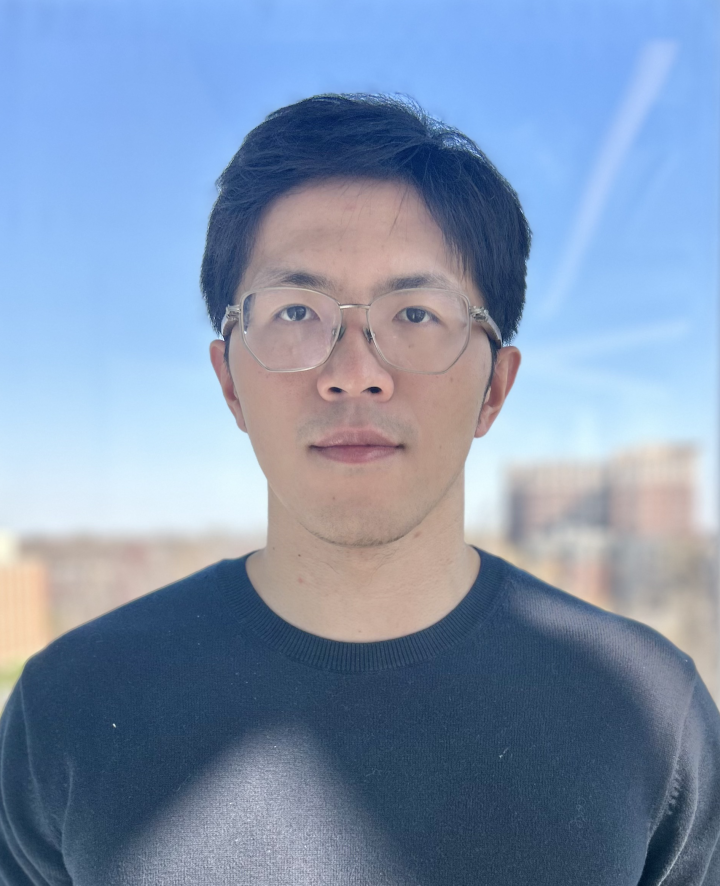Yiling Qiao Awarded Meta Ph.D. Fellowship for Virtual and Augmented Reality Research
Yiling Qiao, a fourth-year doctoral student in computer science advised by Distinguished University Professor of Computer Science Ming Lin, is the recipient of a Meta Fellowship for his excellent work in augmented and virtual reality (AR/VR) computer graphics.
The Meta Research Ph.D. Fellowship program, started in 2010, is designed to support promising doctoral students conducting cutting-edge research in emerging topics across computer science and engineering. The program provides full coverage of students’ tuition and university fees for up to two academic years, as well as a $42,000 stipend. Fellows are also invited to attend the annual Meta Fellowship Summit.
Qiao, whose research focuses on bridging machine learning with physics systems using differentiable simulation, is amongst 21 doctoral students from 12 universities chosen for the 2023 fellowship. They were selected from more than 3,200 applicants from over 100 universities worldwide.
He says simulation helps machine learning by providing synthetic environment and data, as obtaining real data is sometimes costly and even dangerous. On the other hand, gradient-based methods—like deep learning—are efficient but require differentiable systems.
For these simulations, Qiao has worked extensively with rigid and articulated bodies, fluids, cloth, traffic systems, and quantum systems.
“For example, we have simulated a variety of rigid objects including robotic arms, toy cars, and articulated ants,” he says. “Our soft body simulator can handle soft robots such as Baymax from the movie 'Big Hero 6,' fish and pneumatic grippers. In addition, our traffic simulator can run both microscopic and macroscopic simulations of street networks.”
Qiao adds that they have also extended their differentiable simulation expertise to quantum computers, allowing them to directly compute gradients on analog quantum machines.
He says he is happy and surprised that he was selected for the fellowship.
“I’m glad that our work in differentiable simulation can be seen and recognized,” Qiao says. “I hope we can make VR/AR, graphics, and metaverse applications more helpful and accessible to the world.”
Lin, who also holds a joint appointment in the University of Maryland Institute for Advanced Computer Studies, says that Qiao has been developing new machine learning methods for problems in challenging domains, demonstrating orders of magnitude performance improvement over the state-of-the-art.
“The excellence of his research and the level of his productivity is rarely seen, even at the best of research universities worldwide,” she says.
Lin adds that in in the past three years, Qiao has already published nine papers at premium international conferences on machine learning, AI, robotics and computer graphics.
Qiao, who is a member of the UMD GAMMA Group, has also collaborated with many faculty and senior researchers in academic and industry labs, including UCLA, CMU, MIT/IBM Lab, Intel, Nvidia and Meta Reality Lab.
Currently, he is working on equipping neural radiance fields with physics simulation.
With this technique, users can create their own virtual 3D world—for example, their home and workspace—simply by taking several pictures. Then they can simulate and interact in that virtual world with his team’s photorealistic rendering pipeline. He says this could be useful for metaverse, telepresence, content creation and more.
—Story by Melissa Brachfeld, UMIACS communications group
The Department welcomes comments, suggestions and corrections. Send email to editor [-at-] cs [dot] umd [dot] edu.
